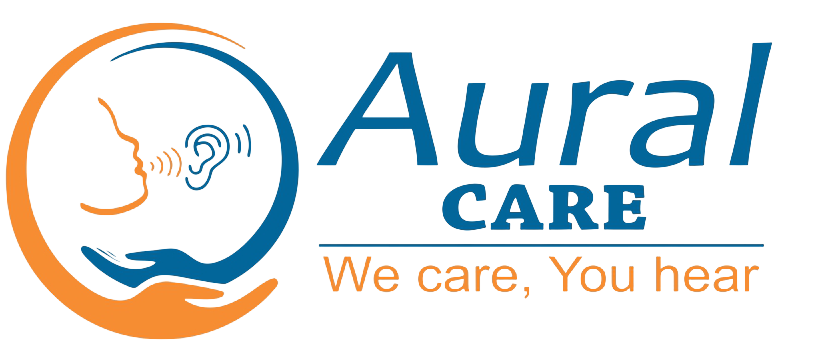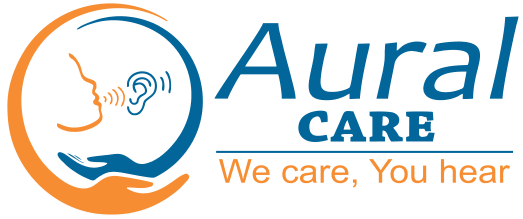Introduction
Choosing the right hearing aid is important as it has a direct impact on our communication level, comfort, and lifestyle. Hearing aids come with a wide variety and notable advancements in hearing technology. They are available in different sizes and types with several benefits and drawbacks. Rechargeable hearing aids and battery-operated hearing aids are two types of hearing aids. This blog article highlights a brief discussion on Rechargeable vs. battery hearing aids, analysing their pros and cons to assist a user in selecting the hearing aid that suits them best.
What are Rechargeable hearing aids?
Rechargeable hearing aids are designed with built-in lithium-ion batteries. It contains long-lasting batteries, and some models have portable charging cases to power up the hearing machine outside.
Advantages of Rechargeable hearing aids
Rechargeable hearing aids come with numerous benefits and reduce the hazards of traditional hearing aids. In recent days, it has become popular for its size and features, and some hearing aids have a USB charging facility. The advantages of these hearing aids are as follows:
- In-built battery – The rechargeable hearing aids do not contain disposable batteries, so there is no need to change the batteries frequently. Those hearing Aids need to be docked on the charger overnight to use them all day.
- Eco-friendly – Using Rechargeable hearing aids is beneficial to reduce waste and to reduce carbon footprint. Thus, sustainability serves for the betterment of the environment.
- Long-lasting- Rechargeable hearing aids can work for about 30 hrs. after a single charge, and the battery lasts for almost 5 years. So there is no need to buy a new battery frequently
- Suitable for seniors – There are no tiny parts in this hearing aid, as well as no need to change batteries; for this reason, most senior persons prefer this type of hearing aid. Rechargeable hearing aids can be the best choice for senior citizens.
- Cost-effective – The initial investment for the Rechargeable hearing device seems to be higher than the traditional one, but in the long term, it is cost-effective as you don’t need to buy new batteries.
Disadvantages of Rechargeable hearing aids
Along with several advantages, rechargeable hearing aids bring some drawbacks. Those are discussed in the following points:
- Dependency on charging unit- One of the major disadvantages of rechargeable hearing aids is that you need to charge them regularly. It will stop working if you forget to charge it, and it takes 3 hrs. or more to charge.
- Expensive – Rechargeable hearing aids are expensive compared to battery hearing aids. Some users avoid buying these costly hearing aids.
What are Battery hearing aids?
The traditional hearing aids contain zinc air batteries that are replaceable after use. The batteries usually last for 3 to 10 days, though the longevity of the battery depends on the use and the power consumption of the hearing aids.
Advantages of battery-operated hearing aids
Battery-operated hearing aids have been used for years and provide users with several benefits. The benefits have been discussed here.
- Cost-effective- Battery-operated hearing aids are less expensive than rechargeable hearing aids. This cheap rate has made it more acceptable to the users.
- Perfect for travel – Travelling with battery hearing aids can be a good idea. You need not carry a charger; only take some extra batteries. You also do not need to worry about power outlets, especially in offbeat areas.
- Lightweight – This type of hearing aid is lighter than rechargeable hearing aids.
Some models of this type of hearing aid are compact, as there is no built-in battery.
Disadvantages of battery-operated hearing aids
Using traditional battery-operated hearing aids is hazardous. The reasons that make it less acceptable to the new users are as follows:
- Regular expenses – There is a consistent expense for batteries. You need to buy batteries whenever you need to carry extra batteries.
- Less Eco-friendly – Battery-operated hearing aids require disposable batteries, and frequent battery changes generate waste. Those hearing machines are less sustainable.
- Difficult to handle – Battery-operated hearing aids contain small batteries that are difficult to handle, especially for seniors. It is also dangerous for the children and your pets.
Rechargeable vs. battery hearing aids — a Detailed Comparison
A detailed comparison is included here, based on their features, to help users choose the most suitable hearing aid for their needs. In the following table, the key features are presented :
| Features | Rechargeable hearing aids | Battery-operated hearing aids |
| Easy to use | Easy to handle | Required changing batteries |
| Eco-friendliness | Sustainable | Not eco-friendly |
| Cost effectiveness | Expensive | Reasonable price |
| Travel friendly | Require charger | Best for traveling |
| Suitable for seniors | Best for seniors | Tiny batteries are difficult to use |
| Ongoing cost | No recurring cost | Recurring cost for the new batteries |
| Power duration | Full day after a single charge | Up to 10 days per battery |
Which hearing aid is better for you?
Assessing several factors is necessary to make the final decision regarding the hearing aids. The selection of hearing devices is based on your lifestyle, range of hearing loss, personal preferences, and budget.
Rechargeable hearing aids will be perfect for you in the following conditions.
- If you prefer hassle-free hearing aids, then you can go for it.
- If you want to avoid the hazard of changing batteries.
- If you are conscious of the environment.
- If you are comfortable charging your hearing aids daily.
Choose the battery-operated hearing aids in case,
- You need a long-lasting power source during travel
- You like to have a lightweight hearing machine
- You prefer to replace batteries instead of daily charging them
- You want a hearing aid at a reasonable price rate
- You can handle the tiny batteries and store extra batteries.
It does not matter which type of hearing aid you are using; make sure that you have bought your hearing device from a trusted hearing aid provider, fitted by an experienced and skilled specialist, and have the support to take care of your hearing aid from the provider.
If you are confused about hearing aids and find it difficult to select the right hearing aids that suit your needs as well as preference best, then you can visit Aural Care, the trusted hearing solution providing clinic in Kolkata. We offer a wide range of hearing aids with advanced technology. Our experienced audiologists are always ready to serve you. The hearing care professionals assess your hearing difficulties through several advanced tests and then suggest the best solution. We not only provide the best quality hearing device after assessing your hearing capacity and preference, but also provide complete support to maintain the device properly.
Conclusion
The right hearing aids vary person to person as per their needs and choices. Different types of hearing aids come with their unique features and benefits. The advantages as well as disadvantages of both Rechargeable hearing aids and battery-operated hearing aids have been discussed here briefly. A thorough comparison between those hearing devices has also been included to help users make the right decision before buying their hearing aids. You need to follow the discussion on Rechargeable vs. battery hearing aids to choose the right one. Taking advice from an expert audiologist is essential to restoring your hearing with the right hearing aid.
Follow us on
- Facebook: facebook.com/AuralCareKolkata
- Instagram: instagram.com/auralcareofficial
- You tube: youtube.com/@AuralCareOfficial

